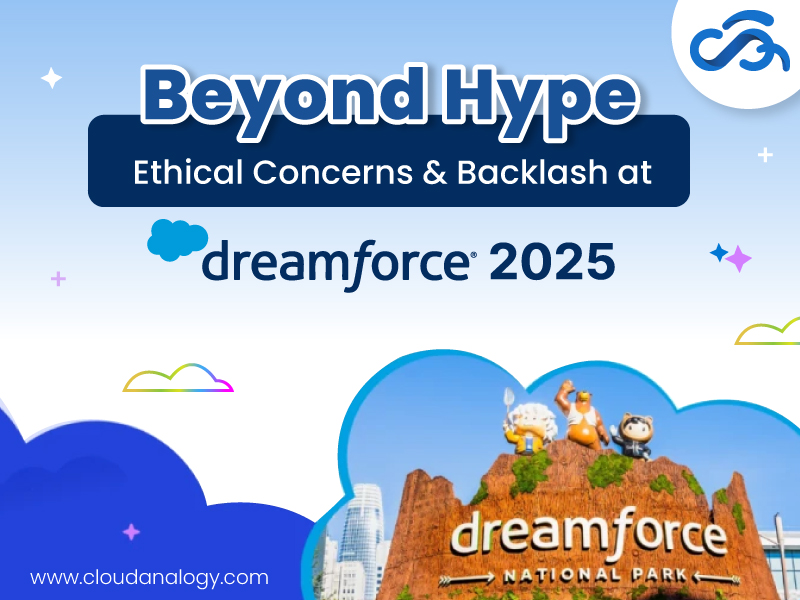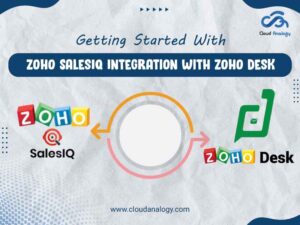Sharing is caring!
Dreamforce 2025 was supposed to be about innovation and inspiration. Thousands of people gathered in San Francisco to see what’s next for Salesforce.
The biggest highlight was the launch of Agentforce 360, a new way to bring AI into daily work. It promised to make businesses faster, smarter, and more connected.
But the week didn’t go exactly as planned. Amid the announcements and excitement, controversy took center stage. From political remarks to AI ethics to public protests, the event faced more questions than ever before.
Why Did Marc Benioff’s Comments Spark Anger?
Before the event, Salesforce CEO Marc Benioff told The New York Times that he supported deploying the National Guard to San Francisco to deal with safety issues.
Many people found this comment shocking and disappointing. They said it sounded like siding with a political agenda instead of showing empathy for local communities.
During his Dreamforce keynote, Benioff added fuel to the fire. He talked about the idea of using AI robot police to make cities safer. People online called the idea “dystopian” and “tone-deaf.” Critics said it showed how tech leaders can sometimes lose touch with real-world struggles.
What happened after that?
The reaction was quick. Philanthropist Ron Conway resigned from the Salesforce Foundation Board. Comedians like Kumail Nanjiani and Ilana Glazer cancelled their sessions. Benioff later apologized, saying he did not want the National Guard in the city and that he only wanted to keep attendees safe.
But by then, the damage was done. The conversation had shifted, from AI and innovation to ethics and accountability.
How Did AI Take the Spotlight and the Heat?
Dreamforce 2025 was branded as the year of Agentforce 360. Salesforce called it the future of work. It showed how AI agents can assist employees, automate tasks, and make decisions.
But what are the concerns?
Not everyone was convinced. Critics and analysts said the hype was bigger than the reality. They questioned whether companies were actually ready to use such tools.
Others raised deeper issues. How much control would people have over what these AI agents do? Would they collect sensitive data without clear consent? Could they make biased or unfair decisions?
The questions didn’t stop there. Some worried about jobs. If AI agents can handle customer support, data entry, or marketing, what happens to those workers?
And then came the topic of trust. AI systems need huge amounts of data to learn and act. People asked: Who owns that data, and how safe is it? These were not small worries; they went to the heart of the entire AI movement.
Did Salesforce Address These Issues?
Salesforce did try to respond. During the sessions, the Chief Ethical and Humane Use Officer said that AI must be used responsibly. She spoke about AI literacy and transparency. She said people should understand how AI makes decisions and where data is used.
But many attendees felt that these talks were not enough. They wanted clear rules and accountability, not just inspiring words. They wanted Salesforce to show real examples of how it keeps bias and misuse in check.
So while the event celebrated AI progress, it also reminded everyone that ethics and innovation must move together.
Why Were There Protests Outside Dreamforce?
While tech leaders spoke inside Moscone Center, protests took place outside.
Activists were there for a different reason: Salesforce’s contract with the U.S. Customs and Border Protection (CBP). They said Salesforce technology was being used to support immigration tracking and deportation systems.
Protesters handed out flyers showing the faces of detained migrants. They called it “the human cost of enterprise software.” It was a powerful image, one that made many attendees stop and think.
Salesforce said it provides tools for better management and transparency, not enforcement. But critics said the line between “support” and “enable” is thin. And once again, the debate circled back to ethics: can a tech company truly stay neutral when its tools are used in sensitive areas like immigration?
What Does All This Mean for Dreamforce’s Future?
Dreamforce has always been more than a conference. It’s part festival, part classroom, and part sales event. But 2025 showed that technology alone isn’t the story anymore.
The world now wants responsibility. It wants clarity. It wants companies that not only build powerful tools but also think about their impact.
How Should Companies Learn from This?
The Dreamforce controversies give a clear lesson for all businesses to think beyond hype.
When you bring AI into your organization, ask:
- Is it fair?
- Is it transparent?
- Is it safe for users and employees?
- Does it protect data privacy?
- Does it align with company values?
Technology is only as strong as the intent behind it. If the intent is to solve problems, not just show power, then AI can truly help people.
The best Salesforce consulting companies will now be those that combine innovation with empathy. Those who listen when people question their decisions. And those that use technology to build trust, not fear.
Cloud Analogy at Dreamforce 2025: Leading by Example
While the world debated the controversies, we chose collaboration, connection, and purpose. At Cloud Analogy, we were proud to stand as one of the official sponsors of Dreamforce 2025, showcasing how innovation can be human-centric and responsible.
This year was also a milestone for us; our flagship product, MCUtility, was crowned the Demo Jam 2025 Champion. More than a win, it was validation of what we believe in: technology that simplifies, empowers, and earns trust.
MCUtility was built to make communication seamless inside Salesforce without ever compromising security or transparency. And that’s what Dreamforce 2025 was all about for us, not just showing what we can build, but showing how we build it.
As the event wraps up, we carry forward one message: innovation means nothing without integrity. Because at Cloud Analogy, we don’t just create technology.
We create trust.
Final Thoughts
Dreamforce 2025 will be remembered for both innovation and introspection. It reminded the world that even the biggest tech events must face hard questions. Because in the end, trust is not built by code, it’s built by conscience.
The lesson for every company, big or small, is clear: Dream big. Build responsibly.
And always remember, technology is powerful only when it respects people.
Frequently Asked Questions (FAQs)
Dreamforce 2025 was supposed to celebrate innovation, but instead raised hard questions about ethics and responsibility. Comments from Marc Benioff and concerns about AI bias and job loss shifted the spotlight from progress to accountability. Top Salesforce consulting firms and tech leaders faced calls to ensure AI remains fair, transparent, and human-centric.
Many Salesforce consulting partners focused on showing how innovation can be ethical. They emphasized transparency, data privacy, and responsible AI use. Their approach reflected what Dreamforce 2025 truly needed, leadership grounded in values. For today’s partners, ethics are not a side note; they’re part of every Salesforce implementation.
The biggest lesson? Innovation must come with accountability. Salesforce consulting companies learned that success is not just about building AI tools but using them responsibly. Clients now expect clarity about how data is used and how systems stay unbiased. Companies offering Salesforce consulting services must create solutions that balance performance and privacy.
While others faced backlash, Cloud Analogy focused on impact. As proud sponsors, we showcased how ethical innovation real results. Our flagship product, MCUtility, won the Demo Jam 2025, a moment that celebrated communication built on trust
Dreamforce 2025 changed the tone for the entire indafter ustry. The future belongs to Salesforce consulting partners who prioritize responsibility over hype. Top Salesforce consulting firms are now rethinking how they design, deploy, and explain AI solutions. From Salesforce application development to integration projects, ethics will lead every discussion. Clients want transparency and empathy.










